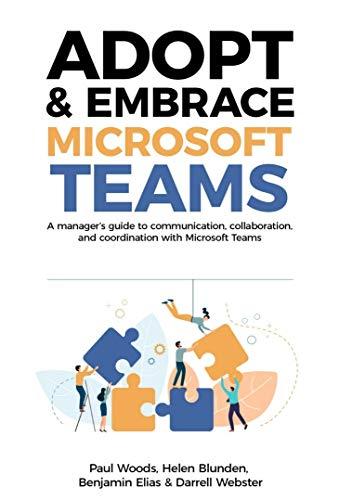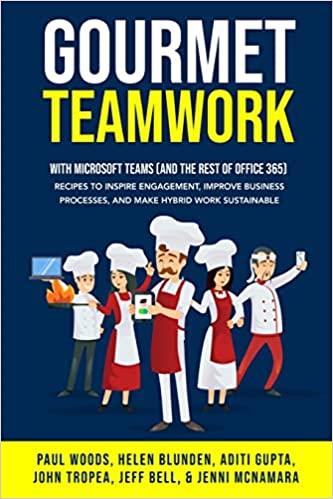Lucidea’s Lens: Knowledge Management Thought Leaders Part 14 – Helen Blunden

Stan Garfield

Helen Blunden specializes in workforce social learning, collaboration, Working Out Loud, and the effective use of social media. She was the inaugural winner of the The Internet Time Alliance Jay Cross Memorial Award in 2016.
In her article, You Are Not a Thought Leader, Helen stated: “Who Am I? NOT A THOUGHT LEADER.” Nonetheless, I consider her to be one. She blogs, vlogs, presents, and shares generously.
As the founder of Activate Learning Solutions in Melbourne, Australia, Helen provides workshops, coaching, and training services to corporate executives and their teams on how to use social media for professional and career development. She provides consulting, design, and development of guided collaborative learning programs (webinars, workshops, individualized executive coaching packages) for clients focused on building lifelong learning strategies and skills in their employees.
Helen helps people activate the way they learn, connect, and collaborate with each other when their workplace is under constant change and transformation. She shows them the skills and behaviors to self-direct their learning to work smarter, not harder.
Helen founded Third Place, a co-working and networking community of over 500 Learning Professionals across 6 Australian cities to meet, network, learn, co-work, and share with each other for their professional and personal development. She is a roving reporter for LearningNowTV, an internet TV channel dedicated to showcasing stories about learning and development around the world.
Profiles
- About Helen
- Social Learning Profile
- Change Agents Worldwide
- Learning eXperts
- Profiles in Knowledge
Content
Books
- Adopt & Embrace Microsoft Teams: A manager’s guide to communication, collaboration and coordination with Microsoft Teams with Paul Woods, Benjamin Elias, and Darrell Webster

- Gourmet Teamwork (with Microsoft Teams and the rest of Microsoft 365): Recipes to inspire engagement, improve business processes, and make hybrid work sustainable with Paul Woods, Aditi Gupta, John Tropea, Jeff Bell, and Jenni McNamara

Other Content
I Permanently Deleted Twitter
But I don’t want to have conversations with anonymous people, with avatars or bots. This technological, hands off, anonymized, streamlined, optimized, ‘fit all’ approach is used now being as a default first over a human, empathetic conversation or approach – and I’m saying, enough. So I’m going to stick to my guns. After all, if others have done it and survived quite well without social media – AND they have reverted to more traditional approaches to share their intellectual property out to the world in some way (books, conferences, meetups, etc.) that others value, then social media is irrelevant in my world now.
LinkedIn: Stay or Go?
The things I held in high value when it came to work (teamwork, purpose, community, co-ordination, mastery) seem to have disappeared as everyone scrambles to figure out what the hell is going on. Everything is in flux at the moment… After all, we have one life and I don’t want to spend it spinning wheels.
Book Review of Ten Arguments for Deleting Your Social Media Accounts Right Now by Jaron Lanier
Since When Did Learning Become So Serious?
Twenty-four tips to get some inspiration back into learning programs – in no particular order.
- Banish the word ‘mandatory’ from the Learning and Development vocabulary and when speaking to your stakeholders and subject matter experts because let’s face it, they’ll think everything is mandatory
- Get comfortable in exploring creative and innovative solutions. We know that completing compliance courses is ‘ticking a box’ for the organization but we don’t have to deploy the same mentality for our program design
- Ask the hard questions to your stakeholders such as, “is it really necessary to have an assessment?” Stand firm and do number 4 now.
- Challenge your stakeholders and subject matter experts and keep asking why. Remember, they’re experts in their subject matter, but you’re the expert in adult learning. They’re relying on you to provide them a solution
- Inspire your stakeholders to think back on their best learning and recall what stood out for them – you’d be surprised to know that many do want something different than ‘tick in the box’ training
- Wow your stakeholders and subject matter experts with a bold, exciting and memorable proposal for their content – you’ve got nothing to lose
- Meet some intrinsic need, connection or motivation to your employees with your content
- Get rid of the barriers to your program. That means the pesky LMS. Prepare to fight on this one.
- Get rid of the corporate lingo (language) in your program. Sell the benefits of your program in ways your employees understand
- Incorporate an experience into your program – it will be memorable
- Generate a buzz or an excitement around your program
- Have opportunities for practical, engaging and interactions both online and offline with lots of opportunity for feedback
- Incorporate some on-the-job performance support tools and aids that they can use before and after the program to keep content refreshed
- Get people to learn together; share together; build a community
- Make it part of their workflow and not separate from it
- Make it practical, hands on, interactive, engaging. Get them to ‘do stuff’ (this does not mean Click Next)
- Use personal stories, real life examples with a splash of suspense and “what’s next that get people talking about it in the office. Think how television producers suck you in with weekly episodes of The Walking Dead and the Game of Thrones; use the same principles minus the zombies or dragons. On second thoughts…
- Allow for self-discovery and self-direction in the content; have some personal ‘a-ha’ moments in your program
- Get your employees to add to the program; share their stories; and create their content
- Offer alternatives in how the program is delivered to cater for those who want flexibility – it doesn’t have to be via an online learning program. How about using other methods and media?
- Explain the bigger picture. How does your program affect their role, their team, their department, their organization, their family, their life?
- Feedback. Feedback. Feedback. Repeat.
- Respect your employees. Don’t waste their time. Make it worth their effort.
- Last of all, make it fun for them (and for yourself too – you’ll be designing it)

Stan Garfield
Please enjoy Stan’s blog posts offering advice and insights drawn from many years as a KM practitioner. You may also want to download a free copy of his books, Lucidea’s Lens: Special Librarians & Information Specialists; The Five Cs of KM from Lucidea Press, and its precursor, Proven Practices for Implementing a Knowledge Management Program. And learn about Lucidea’s Presto, SydneyEnterprise and GeniePlus with KM capabilities to support successful knowledge curation and sharing.
Never miss another post. Subscribe today!
Similar Posts
The LEXICON Framework Part 4: Integrate with Existing Systems
Stan Garfield explores practical ways to embed KM tools into the platforms your team already uses reduces friction, boosts adoption, and makes organizational knowledge easier to access.
The LEXICON Framework Part 3: 10 Ways to eXplain the Value of Knowledge Management
KM expert Stan Garfield offers 10 practical ways to explain and prove the value of knowledge management using Clare Bilobrk’s LEXICON framework.
The LEXICON Framework Part 2: Empower Champions of KM
In part two of our LEXICON series, we explore how empowering KM champions can strengthen knowledge management adoption. Discover practical strategies to identify champions, define their roles, and connect them across your organization.
The LEXICON Framework Part 1: Link KM to Daily Workflows
Stan Garfield explores the LEXICON framework for KM, sharing 16 strategies to embed knowledge management into daily workflows effectively.




Leave a Comment
Comments are reviewed and must adhere to our comments policy.
0 Comments